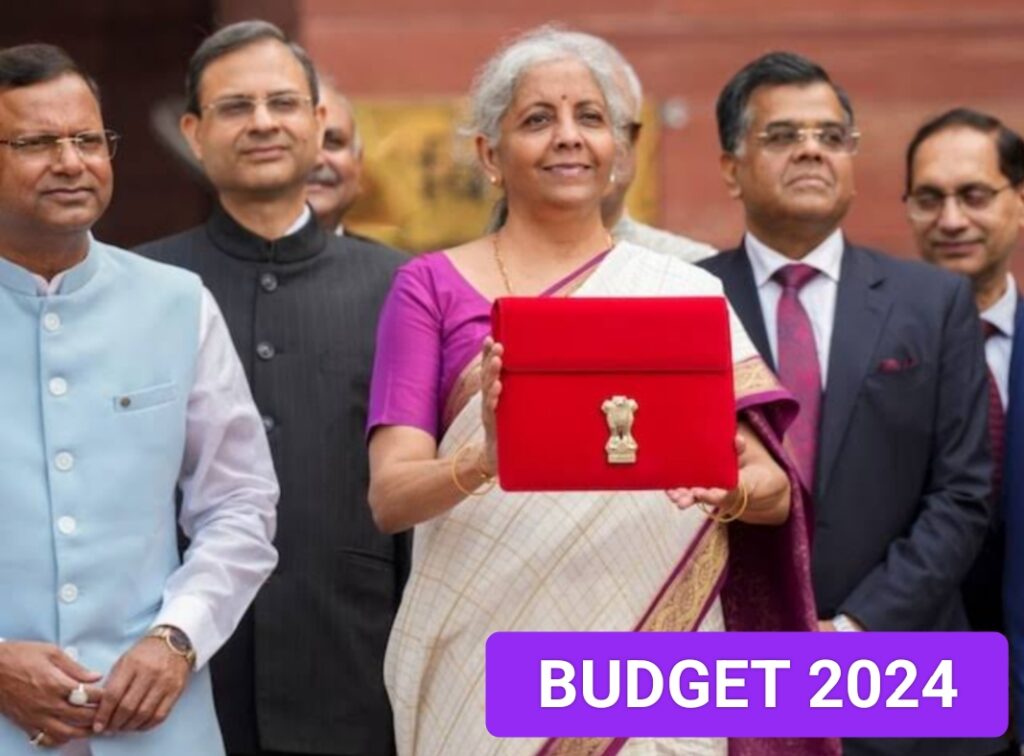Budget 2024 Announcement: Complete digitalization of all major taxpayer services under GST and most services under Customs and Income Tax within the next two years.
In her Union Budget 2024-25 presentation, Union Minister for Finance & Corporate Affairs, Smt. Nirmala Sitharaman, highlighted the budget’s alignment with nine identified priorities, propelling India towards the goal of a Viksit Bharat. She emphasized the government’s consistent efforts to simplify taxation, enhance taxpayer services, and reduce litigation, which have been well-received by taxpayers. In the financial year 2022-23, 58% of corporate tax revenue was from the simplified tax regime, and over two-thirds of taxpayers opted for the new personal income tax regime.
Simplification and Reform in Taxation
To further simplify taxation, Smt. Sitharaman announced a comprehensive review of the Income-tax Act, 1961 in her budget speech, to be completed in six months. This review aims to make the Act more concise and understandable, providing greater tax certainty and reducing disputes.
Measures to Reduce Tax Uncertainty and Disputes
A key proposal in the budget is the simplification of the reassessment process. Assessments can now only be reopened beyond three years if the escaped income is ₹50 lakh or more, with a maximum period of five years. In search cases, the time limit is reduced to six years from the existing ten years.
Tax Simplification for Charities and TDS
The finance minister in her budget speech proposed merging the two tax exemption regimes for charities into one. Additionally, the 5% TDS rate on various payments will be merged into a 2% rate, and the 20% TDS rate on repurchase of units by mutual funds or UTI will be withdrawn. The TDS rate for e-commerce operators is proposed to be reduced from 1% to 0.1%. Moreover, TCS credit is proposed to be integrated with TDS on salary, and decriminalization of delays in TDS payment up to the due date of filing the statement has been announced.
Digitalization and Litigation Reduction
In her budget speech, Smt. Sitharaman announced the complete digitalization of all major taxpayer services under GST and most services under Customs and Income Tax within the next two years. The “Vivad se Vishwas Scheme, 2024” aims to resolve pending income tax disputes. The budget also proposes increasing the monetary limits for filing appeals related to direct taxes, excise, and service tax in various courts to ₹60 lakh, ₹2 crore, and ₹5 crore, respectively.
Expanding the Tax Base
The Security Transactions Tax on futures and options is proposed to be increased to 0.02% and 0.1%, respectively. Additionally, income from buybacks of shares will be taxed as a measure of equity.
Revenue Implications
These proposals are expected to result in a revenue forgone of about ₹29,000 crore in direct taxes and ₹8,000 crore in indirect taxes – while generating an additional ₹30,000 crore. Thus, the net revenue forgone is around ₹7,000 crore annually.
Changes Under New Tax Regime
Smt. Sitharaman announced several benefits for salaried individuals and pensioners under the new tax regime. The standard deduction for salaried employees will increase from ₹50,000 to ₹75,000, and the deduction on family pension for pensioners will rise from ₹15,000 to ₹25,000. The revised tax rate structure is as follows:
| Income Slabs | Tax Rate |
| 0 to 3 Lakh | 0% |
| 3 to 7 Lakh | 5% |
| 7 to 10 Lakh | 10% |
| 10 to 12 Lakh | 15% |
| 12 to 15 Lakh | 20% |
| Above 15 Lakh | 30% |
Abolishment of Angel Tax
To support the Indian startup ecosystem, the finance minister proposed abolishing the ‘angel tax’ for all classes of investors.
Capital Gains Tax Reforms
Smt. Sitharaman proposed a simplification and rationalization of the capital gains tax. Short-term gains on certain financial assets will attract a 20% tax rate, while other financial and non-financial assets will continue to follow the applicable tax rates. Long-term gains on all assets will be taxed at 12.5%.
The exemption limit for capital gains on certain financial assets will increase from ₹1 lakh to ₹1.25 lakh per year. Listed financial assets held for over a year will be classified as long-term, while unlisted financial and all non-financial assets need to be held for at least two years to qualify as long-term. Unlisted bonds, debentures, debt mutual funds, and market-linked debentures will attract capital gains tax at applicable rates, regardless of holding period.
To Access the Highlights of the Budget 2024 CLICK HERE
Also Read: Exempted Allowances under Section 10(14)(i) of the Income Tax Act
Read More
Discard ITR Option Available from AY 2023-24: Discard the Wrong ITR and Refile Afresh

